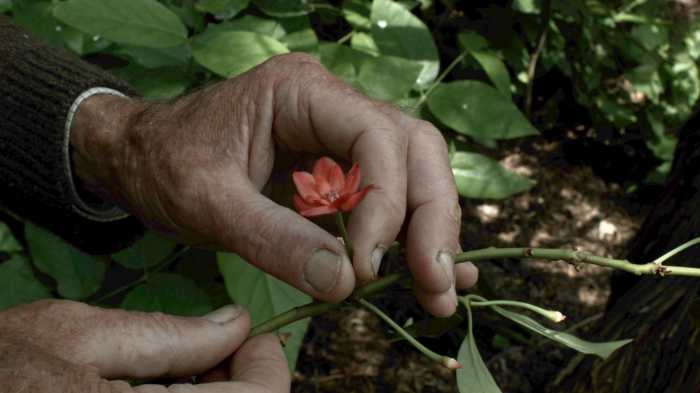Wes Anderson managed to remake a good deal of American cinema in his own image, although I’m sure that was far from his intention. Of the generation of American filmmakers currently in their 40s, only Quentin Tarantino can claim the same. David Fincher and Paul Thomas Anderson may be equally well-regarded, but they don’t have a consistent style that others can pin down and copy.
1998’s “Rushmore” was Anderson’s equivalent to “Pulp Fiction,” although it didn’t make nearly as much money. Released on DVD, it quickly found a cult following for its stylized direction, choice use of ‘60s rock music, and humane approach to comedy.
By the time Anderson released his follow-up, “The Royal Tenenbaums,” imitators had emerged and detractors would accuse him of focusing on First World problems in a twee, quirky style. “The Life Aquatic With Steve Zissou” and “The Darjeeling Limited” suggested the naysayers had a point, but “Fantastic Mr. Fox” was an animated masterpiece.
“Moonrise Kingdom” continues Anderson’s winning streak.
It takes place on an island off the coast of New England. Sam (Jared Gilman) is a wayward Khaki Scout. A year before the main events of the film take place, he met Suzy (Kara Hayward), a 12-year-old girl appearing in a play. The two instantly fell in love and became pen pals. Suzy sneaks out of her parents’ house, and Sam escapes from the Scout camp. The two meet up on the island and share a romantic day, listening to records and reading science fiction novels.
Khaki Scoutmaster Ward (Edward Norton) is infuriated by Sam’s escape and organizes the troop, along with local sheriff Captain Sharp (Bruce Willis), to search for the couple. Meanwhile, a hurricane is brewing off the island.
In its first 15 minutes, “Moonrise Kingdom” shows off all the tools in Anderson’s basket. It begins with a lengthy horizontal tracking shot, moving from left to right as a group of Khaki Scouts listen to a record deconstructing a Benjamin Britten composition. These camera moves are sometimes interrupted by jerky vertical pans. Then, Anderson cuts to an onscreen narrator (Bob Balaban) with no connection to the other characters and the ability to see into the future.
Shooting in 16mm –– though the film will probably be projected digitally at all its New York engagements –– Anderson creates a somewhat unreal look. While the exteriors are fairly naturalistic, most of the interiors are marked by bright, candy-painted colors. Anderson is notorious for his micromanaged attention to detail, and the production design in “Moonrise Kingdom” is no exception. It makes it very clear that the film takes place in a fantasy world whose emotions are nevertheless quite genuine, even heightened.
“Moonrise Kingdom” is set in 1965, but its timing feels approximate and ambiguous. Perhaps only in a period piece could Anderson get away with showing a 12-year-old smoking a pipe. (Smoking seems to be the main reason the film is rated PG-13; all of its violence takes place offscreen.) Once again, Anderson shows off his eclectic taste in music, mixing Britten, Hank Williams, and French yé yé singer Françoise Hardy. Making Hardy the favorite singer of one of his child characters is a bit of a leap, but maybe her music was more popular in the US in 1965 than it is now. If Anderson’s adults are childlike, his children are precocious. The latter is essential for the film to make emotional sense.
Anderson rests on the edge between total absurdity and complete sincerity. Fortunately, he lands on the latter. He gets fully committed performances from his child actors, who get much more screen time than Willis, Norton, or Bill Murray, who plays Suzy’s father. The idea of two 12-year-olds getting married may seem ridiculous, but “Moonrise Kingdom” takes the passion of Sam and Suzy very seriously. In fact, Peter Jackson’s “Heavenly Creatures” is the only film I can think of that takes love between two children or teenagers as seriously; like the lovers of “Heavenly Creatures,” Sam and Suzy are willing to resort to violence to stay together, although they don’t go nearly as far.
Anderson is a Francophile, although the French haven’t always loved him back –– Cahiers du Cinéma ran a grotesquely dismissive review of “Rushmore” upon its release in France. His models for “Moonrise Kingdom” seem French rather than American. Its deep romanticism and depiction of Sam and Suzy as an outlaw couple on the run recall French New Wave films like Jean-Luc Godard’s “Pierrot le fou,” while its tracking shots go back further in French film history, to the work of Max Ophüls. The Khaki Scouts may be all-American, but the cross-cultural sensibility of “Moonrise Kingdom” is a welcome one.
MOONRISE KINGDOM | Directed by Wes Anderson | Focus Features | Opens May 25 citywide



































